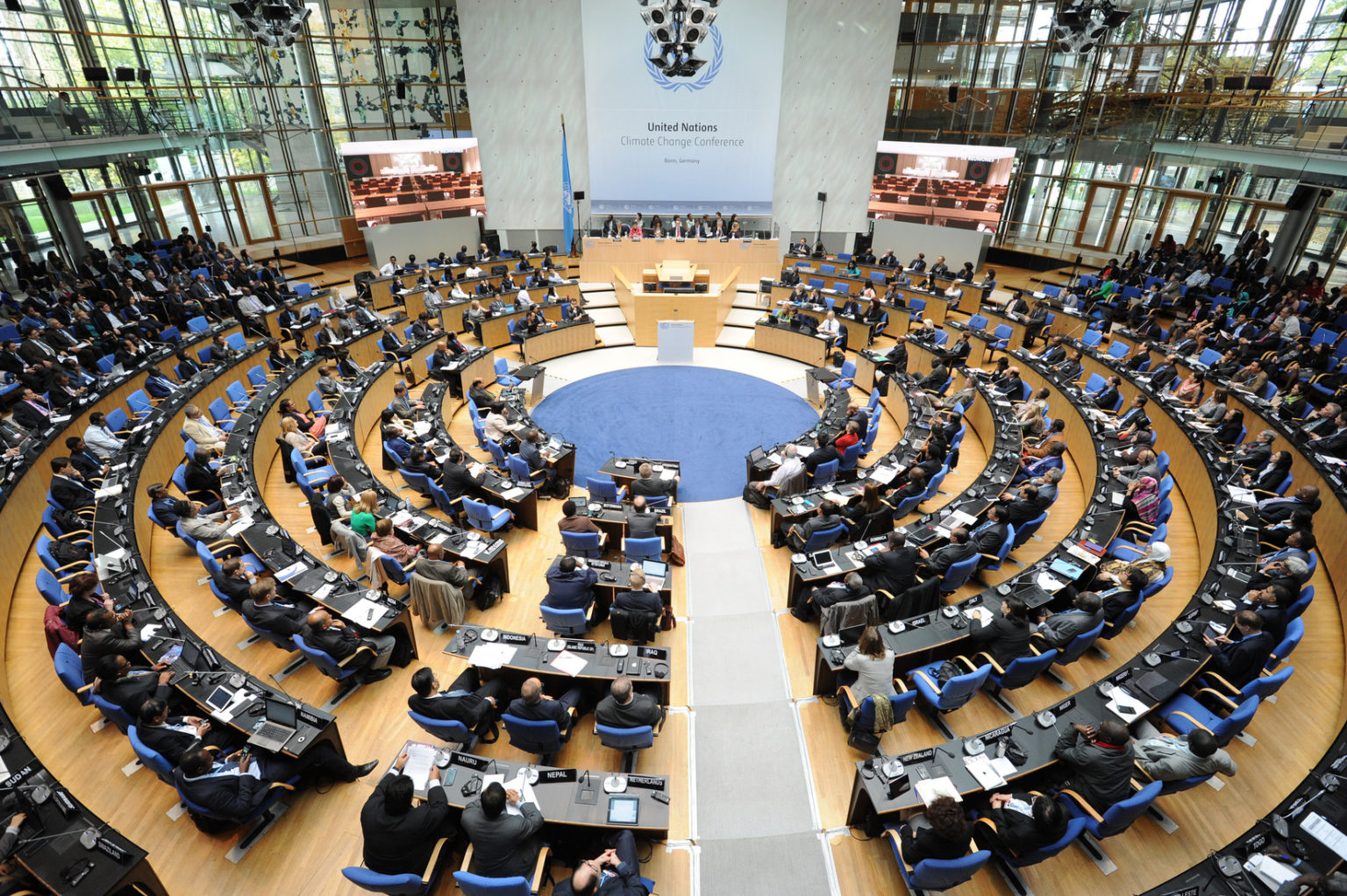When it comes to the fossil fuel industry participating in UN climate negotiations, it’s clear there is a conflict of interest – and demands for this to end are nothing new. But after fierce resistance to this idea during talks in Bonn last week from the EU, US and Australia, more needs to be done, argues Pascoe Sabido of Corporate Europe Observatory. With just six months to go before November’s COP23 climate negotiations, calls for big polluters to be excluded from the talks are growing.
Last May at the same ‘intersessional’ climate talks in Bonn, a group of countries representing more than 70 percent of the world’s population insisted on adding a conflict of interest provision in the negotiating text. It almost made it, were it not for an underhand move by the European Union and the USA which saw it removed.
Pulling the strings behind such moves: the world’s largest fossil fuel companies.
Taken to its logical conclusion, addressing conflicts of interest would mean kicking out the same corporations whose profits are built on causing climate change.
Research shows that at least 80 per cent of known fossil fuel reserves need to be kept in the ground to keep global warming below 2 degrees, let alone 1.5 degrees. But a look at BP and Shell’s future energy projections allege that we can continue to burn fossil fuels indefinitely.
Ending fossil fuels would put them out of business. This is a fundamental conflict of interest, yet getting it even discussed – let alone addressed – has been an uphill struggle.
However, persistence of those countries at the frontline of climate change – particularly Ecuador, which is seeing increasing water shortages and crop failures – as well as increasing public outrage and civil society’s call on the UN to ‘Kick Big Polluters Out’ of climate policy, has ensured the issue has remained on the agenda.
This year’s two-week intersessional talks in Bonn saw an official workshop on the topic organised by the secretariat of the United Nations Convention on Climate Change (UNFCCC).
Taking place on 9 May, the second day of the talks, the strongest intervention came from the secretariat of the World Health Organisation’s (WHO) Framework Convention on Tobacco Control.
On the WHO’s behalf, Ms Johanna Gusman spoke about its struggle against a tobacco industry that had “the express intention of subverting the role of government and of the world health organisation in implementing public health policies that combat the tobacco epidemic”.
The WHO found that as long as tobacco lobbyists were allowed access to the negotiating process, ambition remained low.
The fundamental and irreconcilable conflict between the interests of the tobacco industry and public health policy meant the firewall the WHO eventually erected between policy makers and lobbyists (known as Article 5.3) was the only way to protect the negotiations against vested commercial interests.
Importantly, the firewall also applies to national policy-making within all 180 countries that have ratified the convention. Gusman urged the UNFCCC to “heed the [WHO’s] remarkable example” in tackling vested interests.
Rather than heeded, her advice was angrily dismissed. First by the Australian negotiator, who claimed that Shell and ExxonMobil were leading the way in tackling the climate crisis. Then by employers’ association BusinessEurope and the International Chamber of Commerce, which count both oil majors as members.
The very notion of exclusion goes against decades of industry’s privileged access, both in the UN talks and at national level. A case in point is the European Union’s Climate and Energy Commissioner Miguel Arias Cañete, who used to be president of not one but two oil companies while a Member of Parliament in Spain, and is leading the EU at the climate talks. Research from CEO shows how Big Oil and Gas enjoyed privileged access with the Commissioner since taking office, particularly those in Spain.
And in the UK, an investigation last year showed more than a dozen former civil servants now lobby for the oil and gas sector, highlighting the revolving door between government and industry.
The ensuing negotiations following last week’s Bonn workshop proved equally volatile, with the US, EU and Australia trying once more to stop any attempt to address conflicts of interest. While their efforts did not entirely succeed, it will be yet another year until the issue is officially back onto the agenda.
Countries have until January to submit concrete proposals on how to “enhance effective engagement” of stakeholders, which is a stand in for “conflicts of interest” as there was no agreement on mentioning it by name. This will then be discussed in May 2018: same time, same place, another year down the road.
Given the gravity of the crisis, the utter lack of ambition and the reality that time is not on our side, can we wait that long?
Fiji – an island threatened by rising sea levels – is the official President of COP23, also taking place in Bonn. Fiji and other Pacific Islands have already called for a moratorium on new coal mines. But taking down the fossil fuel industry means starving them of influence.
The World Health Organisation’s Johanna Gusman spelled it out: ambitious targets cannot and will not be agreed with industry representatives at the negotiating table. Banning fossil fuel lobbyists from COP23 in November would represent a giant step forward in getting there.
Photo: UN Climate Change via Flickr | CC 2.0
Subscribe to our newsletter
Stay up to date with DeSmog news and alerts






